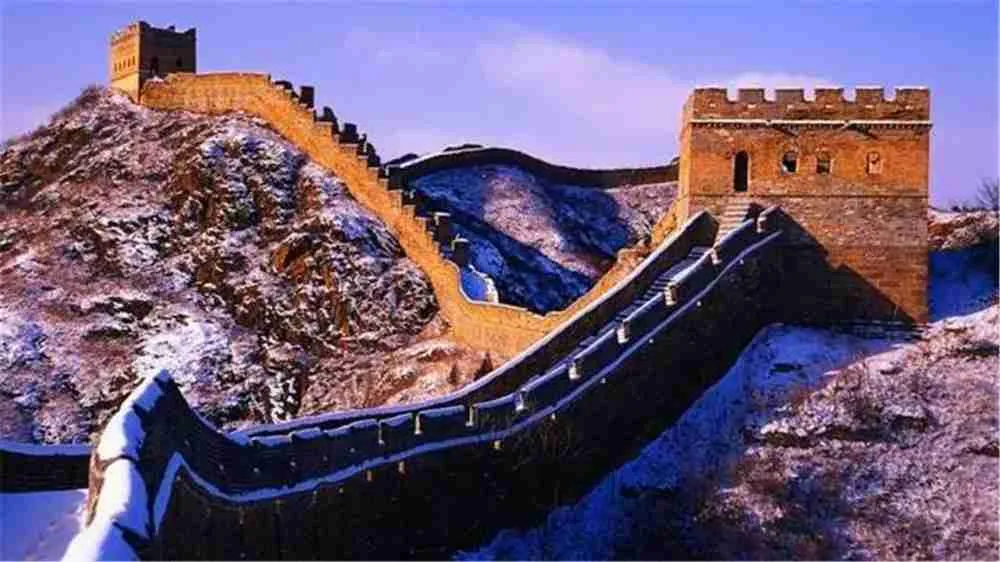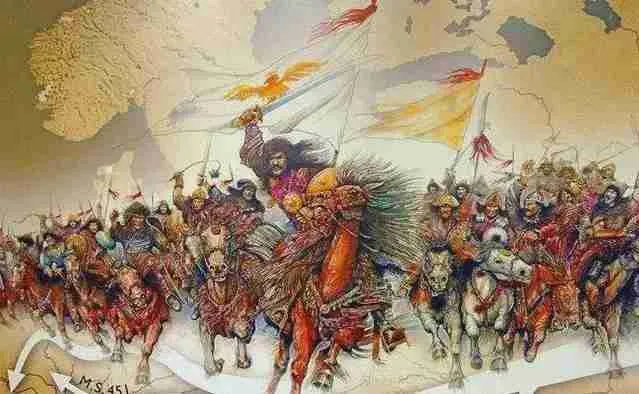The Xiongnu is one of the famous nomadic tribal federations of people. Also known as huns china.And according to sources from ancient Chinese times, this nomadic tribe inhabited the eastern part of the Eurasian Steppe from around the 3rd century BC up until the 1st Century AD. This tribal league is one of the tribes that was the biggest threat to China, especially on the country’s Northern Frontier, leading to the exploration and conquest of a large chunk of the Central parts of Asia by China. The Xiongnu people formed a state, and it is believed that this tribe led one of the biggest Chinese explorations. A number of the ancient Chinese sources note that the Xiongnu’s Empire was founded in 209BC under the leadership of the founding leader known as Modu Chanyu.
The region of origin for the Xiongnu is the Ordos, which was a crucial gathering point for the different pastoral people that resided in Inner Mongolia.
When Did The Xiongnu Invade China?

Although historical records are scanty and can be misleading at other times, The Xiongnu appear to first show up in the historical records of Ancient China around the 5th Century BCE. This is also the time when this tribe launched repeated invasions in China, actions that prompted the small kingdoms in North China that were constantly under attack to kick off one of the largest projects ever undertaken in Ancient China – building of the Great Wall of China.
Records show that the invasions by the Xiongnu turned into real threats to China after the 3rd Century BCE, which was after the tribe formed or, rather, was translated into a full, far-flung tribal confederation ruled by the chanyu. The Chanyu is considered to be a rough equivalent of Ancient China’s emperors designated the term Tianzi or the Son of Heaven. These confederations ruled over large territories extending from Western Manchuria or China’s provinces of the Northeast to the Pamirs, as well as present-day Mongolia and Siberia.
Their fierce attacks that features mounted warriors on horseback, totaling 300,000, and archers are some of the things that made the tribe quite feared whenever they made their periodic attacks on North China.
Why Did The Xiongnu Attack China?
The tribe of Xiongnu would raid China’s Han government often, and the raids were constantly directed to the pastures, which would affect the dynasty because the horses were of great significance in the military attack strategies by the Han Dynasty. With more than 450,000 horses bred during Emperor Wu’s reign of the Han Dynasty, attacks on the pasture dealt them huge blows, and the Xiongnu understood this, hence their attacks.
These attacks seem to have started in the 3rd Century BCE. And because these tribesmen were some of the most formidable warriors trained to hunt on horseback and with the finest archery (bow and arrow) skills, the Xiongnu presented a big threat to the Han dynasty. As
Why Was The Xiongnu Important?

The main reason why the tribe of Xiongnu is of great historical significance to China’s history is the fact that this was not just another small tribal group that lived closed to China, present-day Mongolia; they were a rather dominant power that resided on the steppes of North-East China, and because they were attacking Han Dynasty’s horse pasture to feed their own horses, perhaps even taking the dynasty’s horses, they were naturally a huge threat. Well, this and the fact that the tribe was essentially a large group of formidable warriors and charioteers meant that the Han dynasty suffered a great deal after every attack.
Historical records and archaeological excavations also indicate that between 209BCE and 128BCE, this tribe was the most powerful warring pastoral group, and they had established themselves as the power base, and they subsequently expanded in all directions. Their attacks led them to take back the lands located to the South that had been lost to the encroaching Qin dynasty in the past. In the process, they had absorbed most of the smaller nomad groups in most of Inner Mongolia and even to the North. As a result of their big numbers and power at the battle, they overwhelmed China’s Eastern Hu dynasty. They attacked as far as the northern part of Afghanistan, defeating the Yuezhi and forming the Tarim basin.
Their growth posed a greater threat to the Han dynasty as time passed, and this led the Chinese to develop the Great Wall on China’s Northern Frontier. This took place during the Qin and Han dynasties, among others. Although the Great Wall slowed down the Xiongnu, it did not stop them.
The failure of the wall to fully contain the situation led the Han to change tact, offering the warriors marriage to their princesses, all in an attempt to control the warriors, but this strategy failed.
The raids on China went on until the dynasty’s emperor at the time, Wudi, who reigned between 141BCE and 86BCE, initiated new and the most fiercely aggressive policies against the nomads. These policies involved expeditions sent to Central China to outflank the nomads while negotiating alliances. These expeditions also started the Chinese conquest of Northern Korea’s and Southern Manchuria state known as Chosŏn. It also led to China’s exploration of Turkistan.
Are The Xiongnu Turkic?
There are many theories regarding the ethnicity of the Xiongnu, including Hun, Iranian, Mongolic, Yeniseian, and Turkic theories. But were they Turkic?
Well, it is theorized that the Xiongnu were either proto-Mongols or Proto-Turks who spoke a language close to the language Dingling. The Uyghur Khagans claim to have descended from the Xiongnu, and other subtribes are also considered subgroups of the Xiongnu.
So, we cannot definitively say that they are Turkic.
Are Xiongnu Mongols?
A number of scholars suggest that the Xiongnu spoke a language that was closely related to the Mongolic languages. One Mongolian archaeologist had a proposal in which it was noted that the Mongolian Slab Grave Culture people were Xiongnu’s ancestors; others note that the opposite could be true and that the Xiongnu could have been Mongol ancestors. There also are references to the Xiongnu and the Genghis Khan that point more towards the Xiongnu being of the Mongolian ethnicity.
Way cool! Some extremely valid points! I appreciate you writing this write-up and also the rest of the website is also really good.